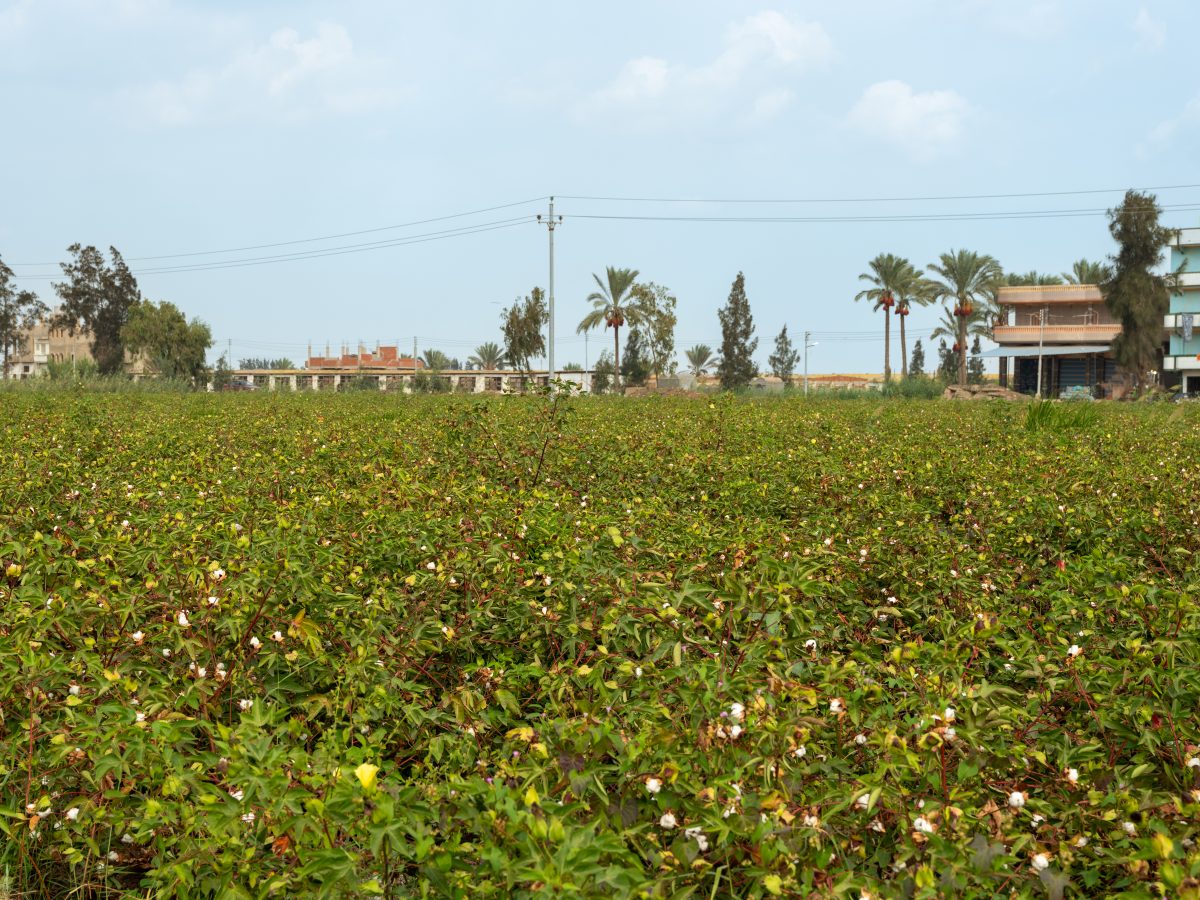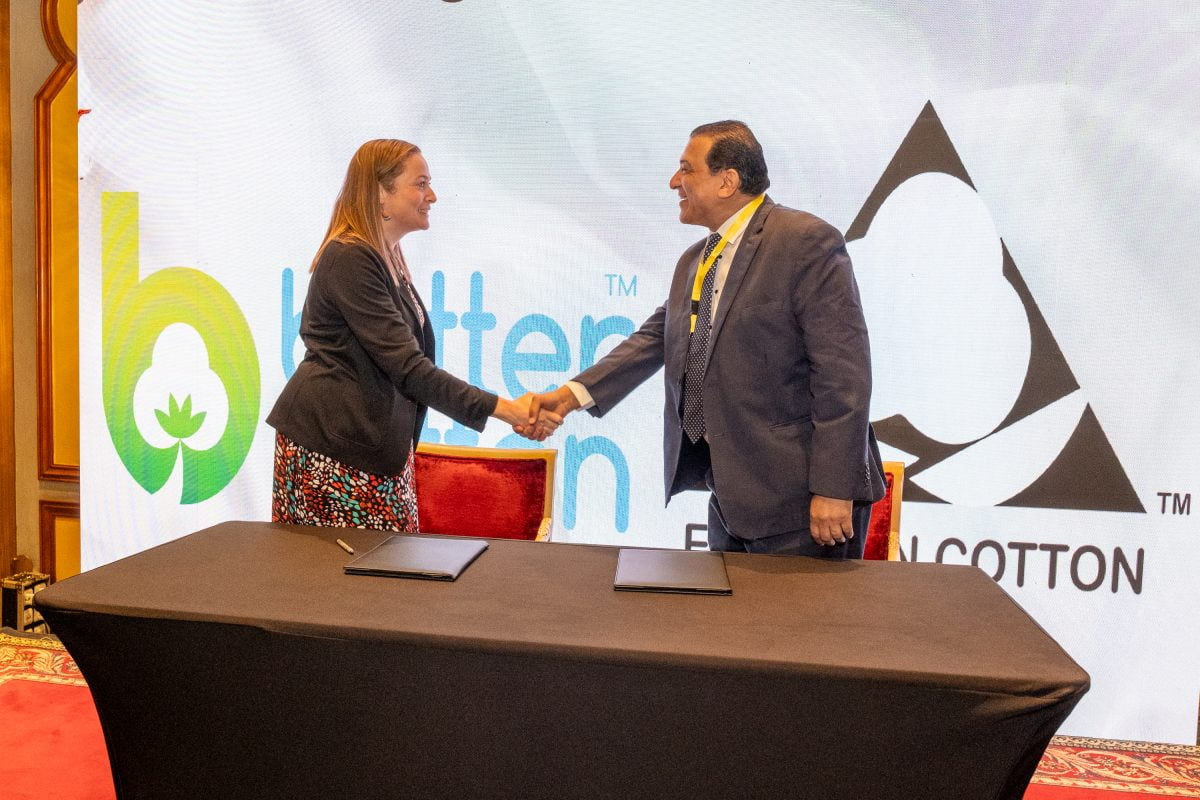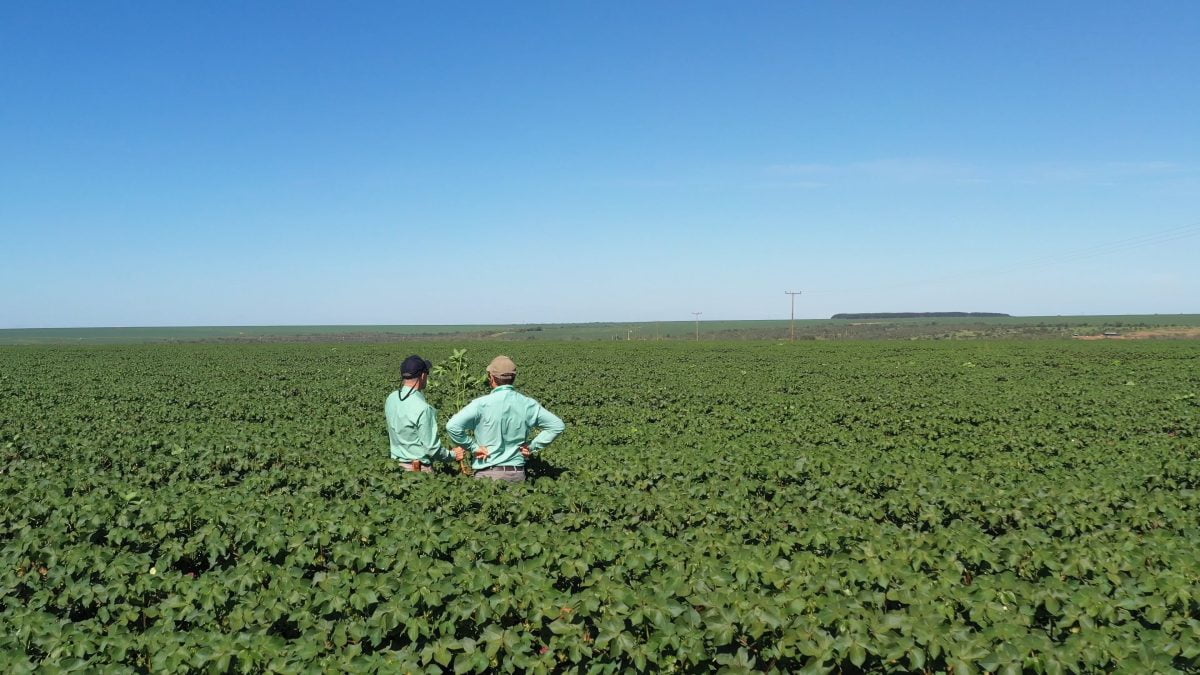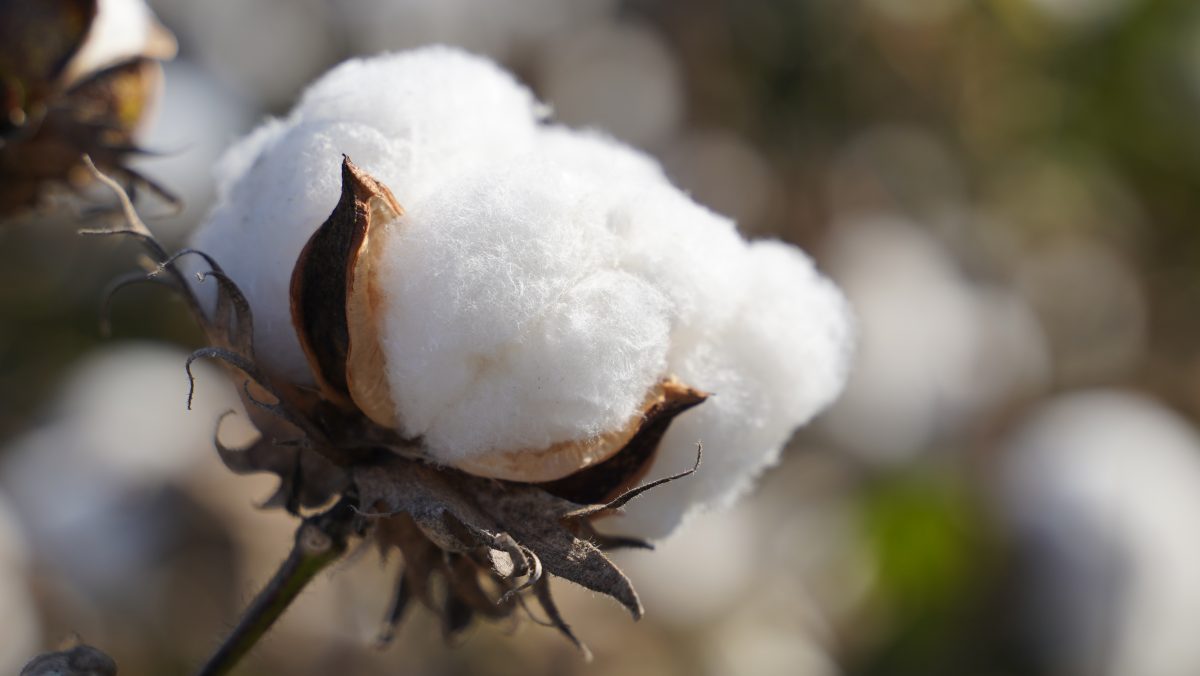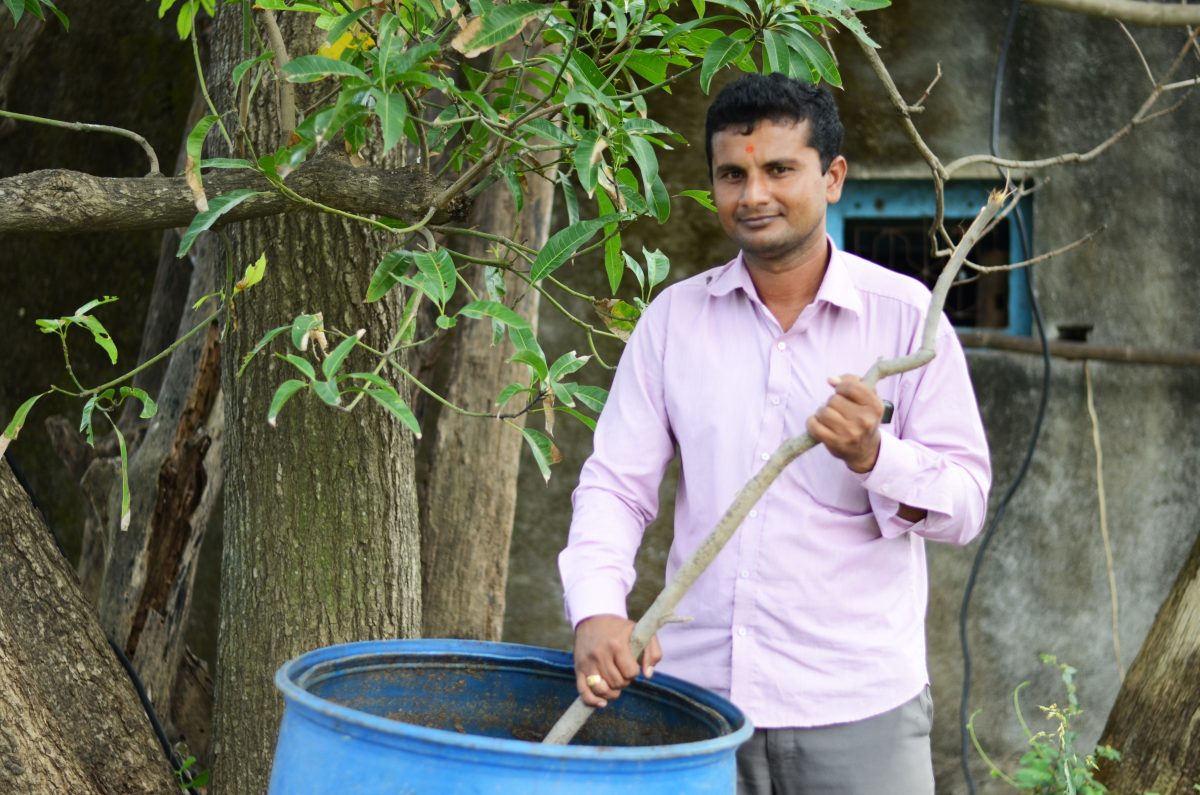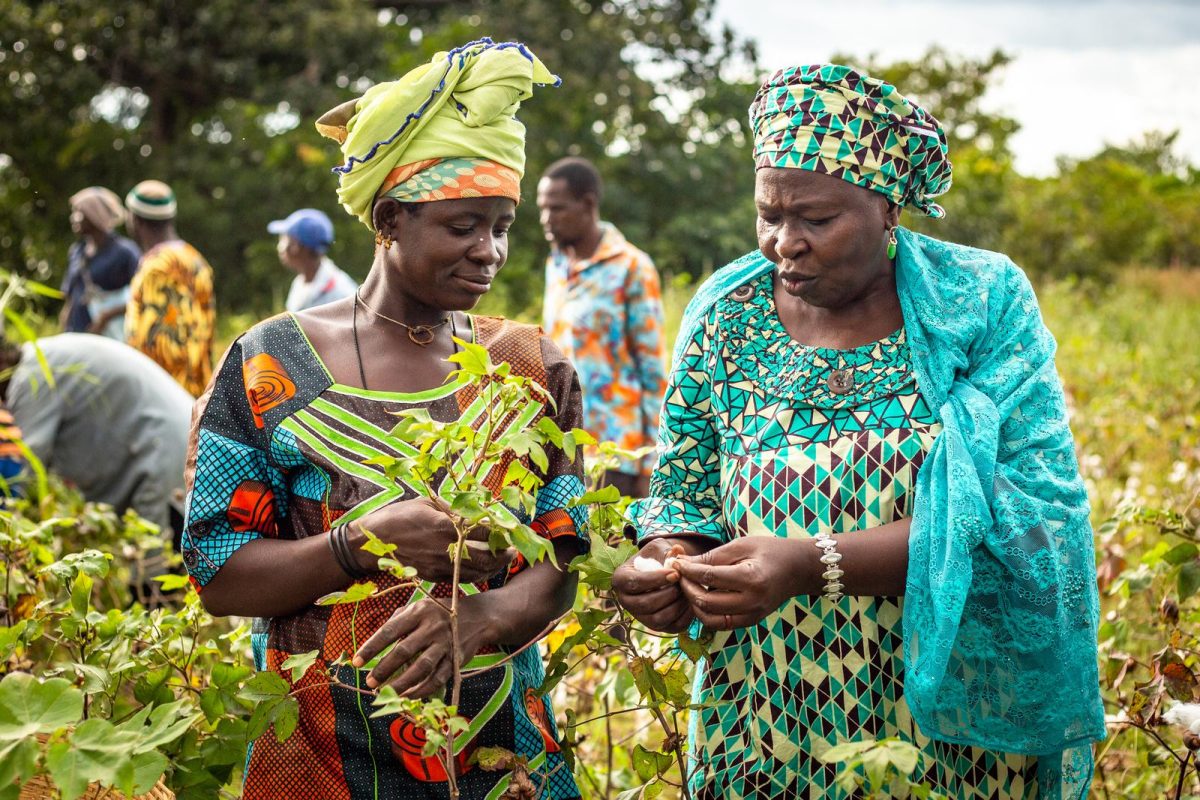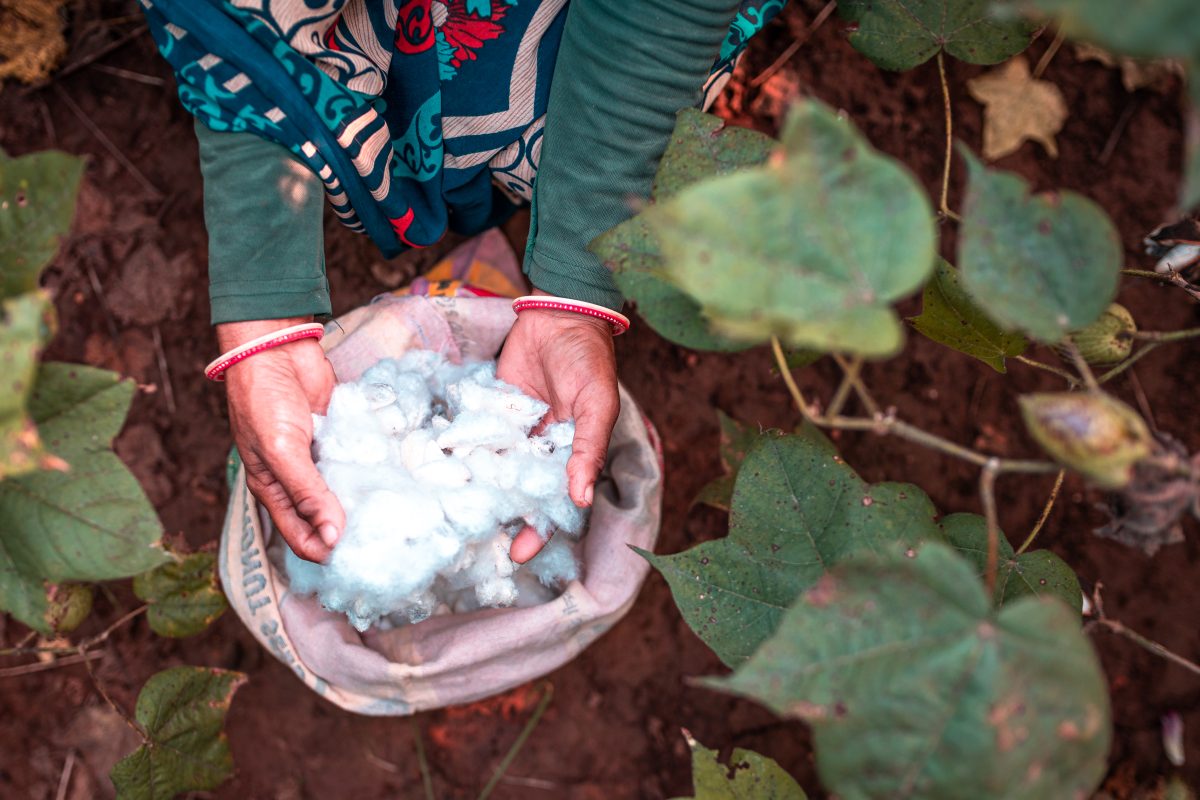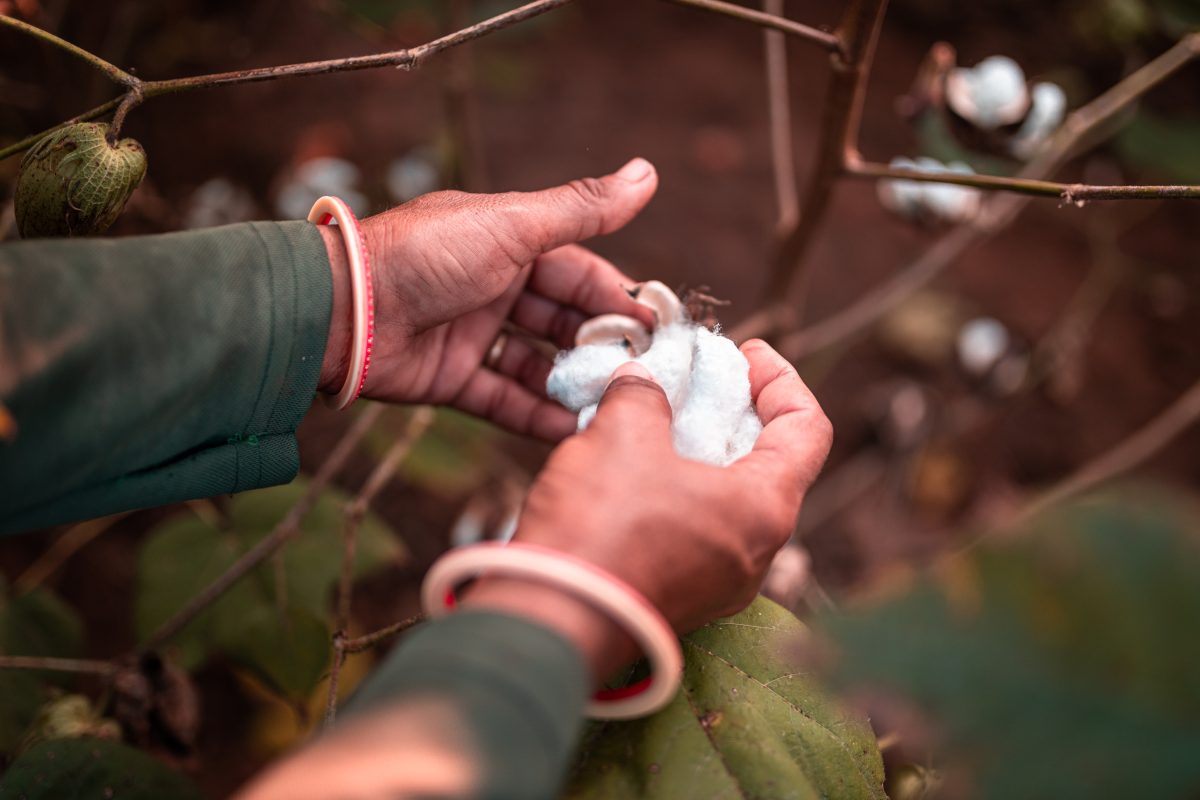World Cotton Day: Abdoul Aziz Yanogo Discusses Better Cotton’s Programme in Egypt With Cotton Outlook
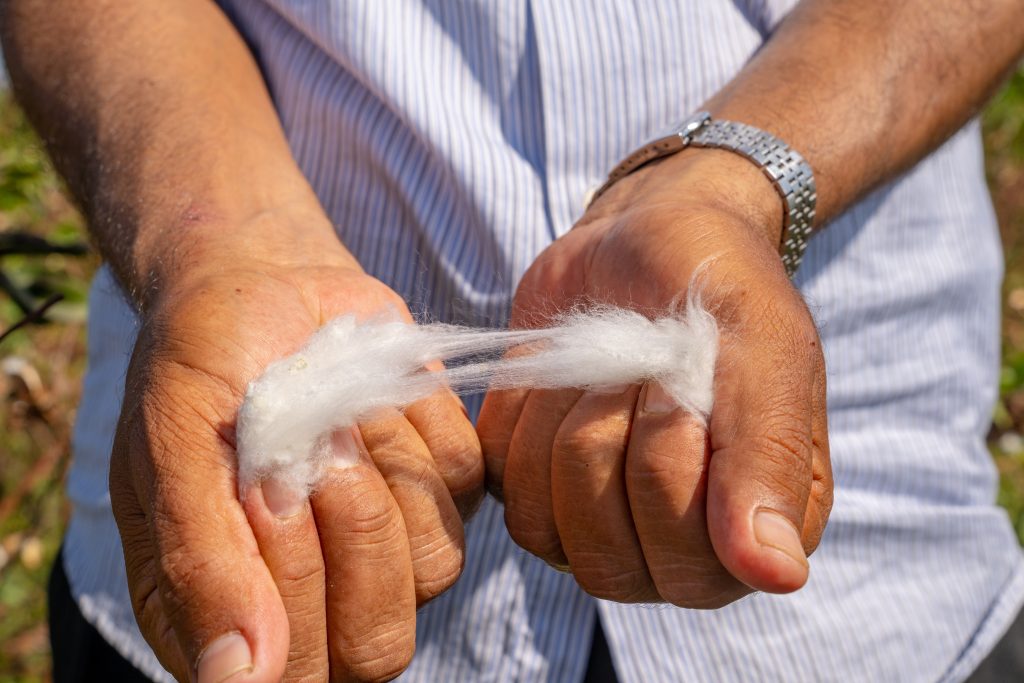



Last week, we shared the news that Better Cotton and Cotton Egypt Association (CEA) had hosted a multi-stakeholder event in Cairo to celebrate the launch of our renewed strategic partnership in Egypt, aiming to further enhance the yields and sustainability credentials of Egyptian cotton while ensuring fair working conditions for farmers and workers.
In honour of World Cotton Day 2023, which was celebrated across the world on 7 October, Abdoul Aziz Yanogo, our Regional Manager for West Africa, sat down with Cotton Outlook to discuss the partnership.
In his Q&A with Cotton Outlook, Abdoul Aziz gives an overview of the programme and the key developments over the past few years, including:
• The challenges of starting the programme during the Covid-19 pandemic
• The recent renewal of Better Cotton and CEA’s strategic partnership
• The expected volumes of licensed Better Cotton for the 2023/24 season, which are estimated to represent around 10% of Egyptian cotton
The article features in the publication’s 2023 World Cotton Day Special Feature, which highlights some of the innovations being implemented across the globe to improve the sustainability and efficiency of cotton production and processing.
To read the full Q&A with Abdoul Aziz, along with the rest of Cotton Outlook’s World Cotton Day publication, please click here. To check out the other pieces that Better Cotton published in celebration of World Cotton Day 2023, head to this link.
Read moreBetter Cotton and Cotton Egypt Association Celebrate Renewed Strategic Partnership at Multi-stakeholder Event in Cairo
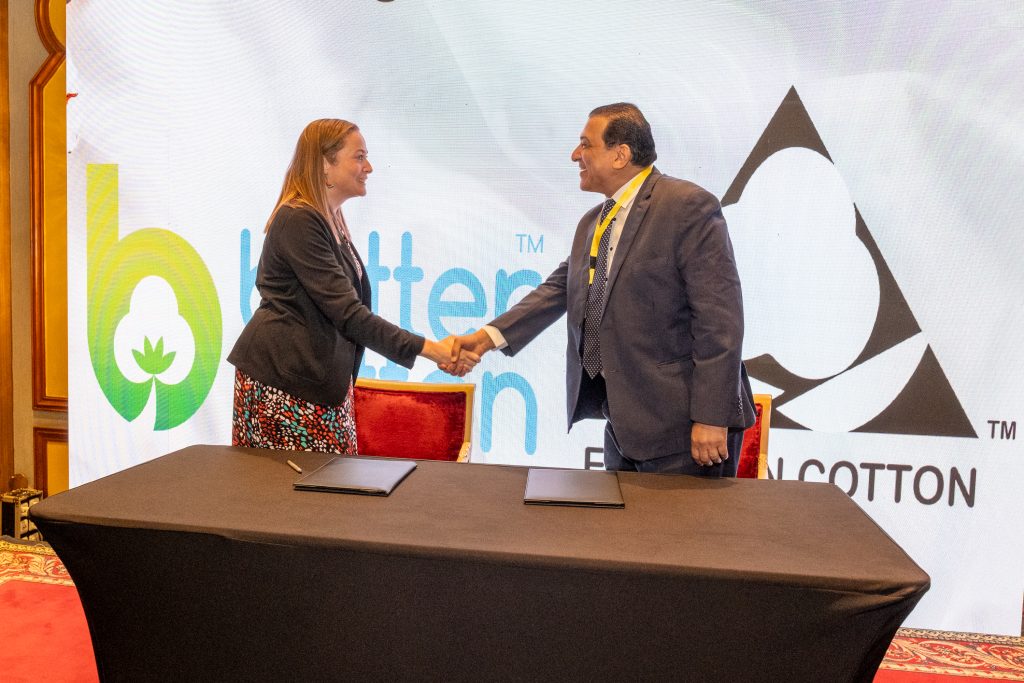

Better Cotton, the world’s largest cotton sustainability initiative, and Cotton Egypt Association (CEA), the organisation responsible for promoting and protecting Egyptian cotton worldwide, celebrated the launch of their renewed strategic partnership at a multi-stakeholder event in Cairo on Wednesday, October 4, 2023.
Uniting key stakeholders from across the cotton sector in Egypt and beyond, the event brought together representatives from Better Cotton, CEA, Better Cotton’s Programme Partners in Egypt (Alkan, Modern Nile and El Ekhlas), and a number of leading Better Cotton Retailer and Brand Members, as well as these members’ suppliers.
Through a renewed strategic partnership, Better Cotton and CEA aim to further enhance the yields and sustainability credentials of Egyptian cotton while ensuring fair working conditions for farmers and workers.
At the event, participants discussed opportunities to collaborate and what is required to increase the uptake of more sustainable Egyptian cotton.
Attendees also visited a Better Cotton licensed farm in Kafr Saad, in the north of Egypt, where farmers demonstrated sustainable agricultural practices. Better Cotton Members and others in attendance were able to engage with the farmers and workers, discussing key challenges and opportunities in adopting these practices.
The event was an important moment to reflect on the progress that Better Cotton and Cotton Egypt Association have made through our partnership so far, and the opportunities for further success going forward. It provided the opportunity for direct dialogue between Better Cotton producers, supply chain actors and key stakeholders from the British retail industry, and it is anticipated that it will result in increased demand for more sustainably produced Egyptian cotton.
I believe that we had a wonderful and fruitful event celebrating years of dedication, collaboration, and hard work that led to where we are today in driving the sustainability of ‘white gold’. The great interest shown today by retailers – and the support we have from all stakeholders in attendance – will pave the way for more success, more production of Egyptian sustainable cotton with Better Cotton’s standards, and more uptake from retailers.
Celebrating World Cotton Day 2023
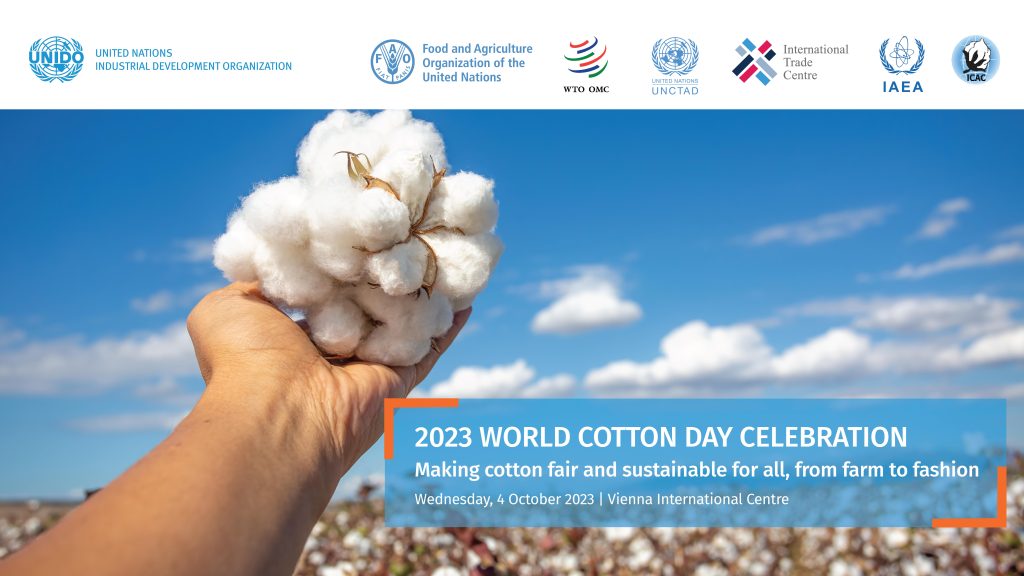

Today we celebrate World Cotton Day 2023, an annual commemoration of one of the world’s most renewable resources and a commodity that supports approximately 100 million families.
At Better Cotton, we’re working every day to support and strengthen cotton growing communities so they can keep growing the crop they rely on. As the world’s largest cotton sustainability initiative, our strategic aims are to embed sustainable farming practices and policies; enhance well-being and economic development; and drive global demand for sustainable cotton. We believe in the power of sustainable cotton to transform livelihoods and the environment.
World Cotton Day was adopted by the United Nations General Assembly in 2021. The annual date is 7 October, but this year is being celebrated on 4 October with a World Cotton Day 2023 event hosted by the United Nations Industrial Development Organization (UNIDO) and the Food and Agriculture Organization of the United Nations (FAO) in Vienna, Austria.
This year’s theme is “Making cotton fair and sustainable for all, from farm to fashion.”
We’re proud to have our own Jacky Broomhead, Senior Traceability Manager, presenting at WCD 2023. She’s discussing ‘Traceability as an innovation for the cotton sector’ – a topic we’ve been focusing on as we prepare to launch our Traceability Solution next month and continue to explore how we can create more opportunity for farmers and the rest of the sector.
We’ve also this week had CEO Alan McClay speak at The Economist’s Sustainability Week in London, participating in a panel called ‘Word on the High Street – Making Fashion and Cosmetics Sustainable.’
This is a movement and not a moment, and we hope everyone – brands and retailers, manufacturers, producers and consumers – will join us and be part of something better.
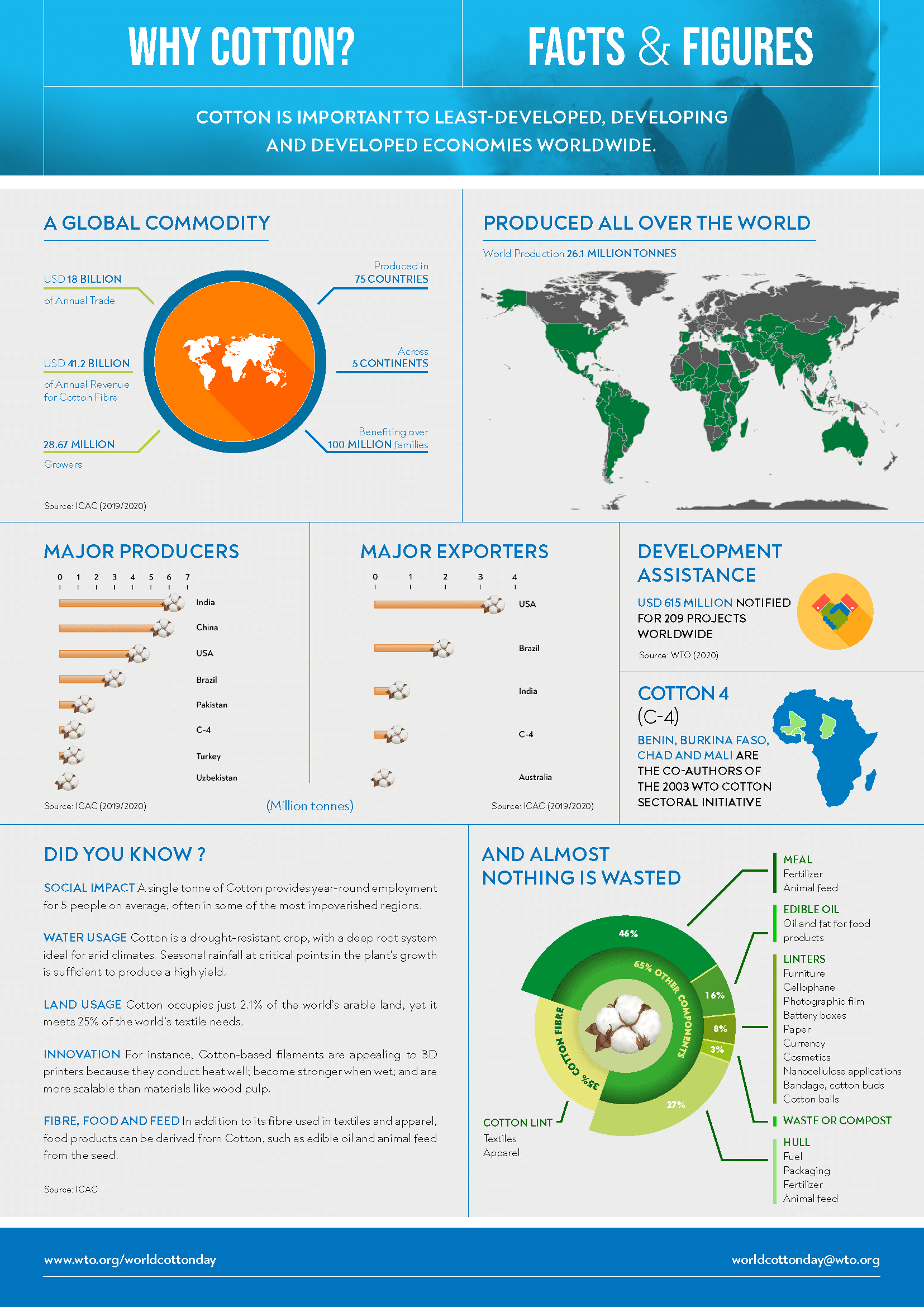

Better Cotton 2022–23 Annual Report: Better Cotton Accounts for 22% of Global Production
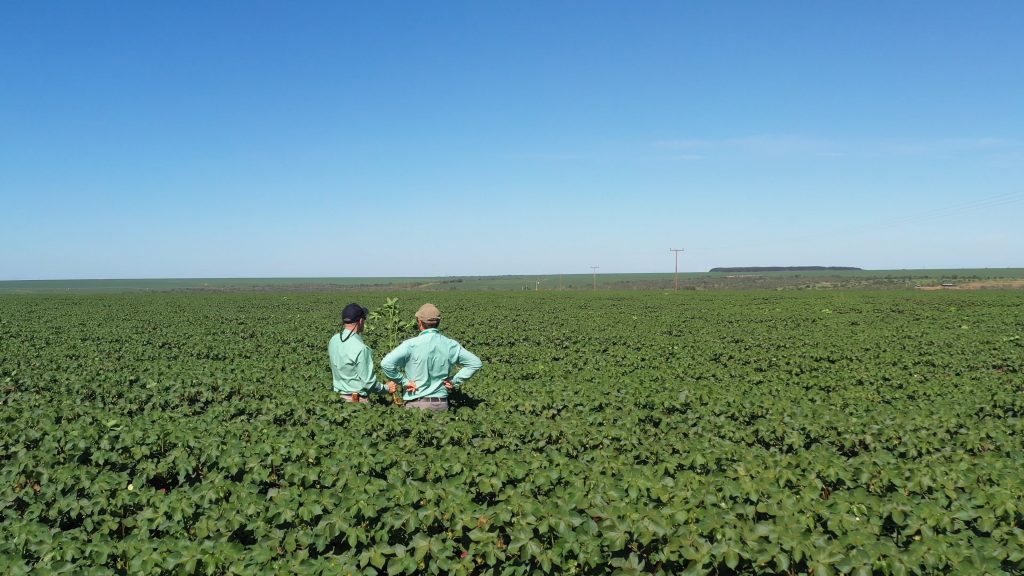

We’re pleased to release our Annual Report 2022-23 this week. The annual report provides an important opportunity to reflect on the progress Better Cotton has made towards our goals in the past year, exploring field and market successes and challenges, and sharing key financial information.
In this report, we see that:
- In the 2022-23 cotton season, the Better Cotton programme reached more than 2.8 million cotton farmers in 22 countries
- 2.2 million licensed farmers grew 5.4 million tonnes of Better Cotton – this accounted for 22% of global cotton production and equalled a 15% production increase on the previous season
- In 2022, Better Cotton’s membership reached 2,563. Non-member users of the Better Cotton Platform exceeded 10,000 for the first time – reaching 11,234 suppliers
- Retailer and Brand Members sourced 2.6 million tonnes of Better Cotton – accounting for more than 10% of global cotton production
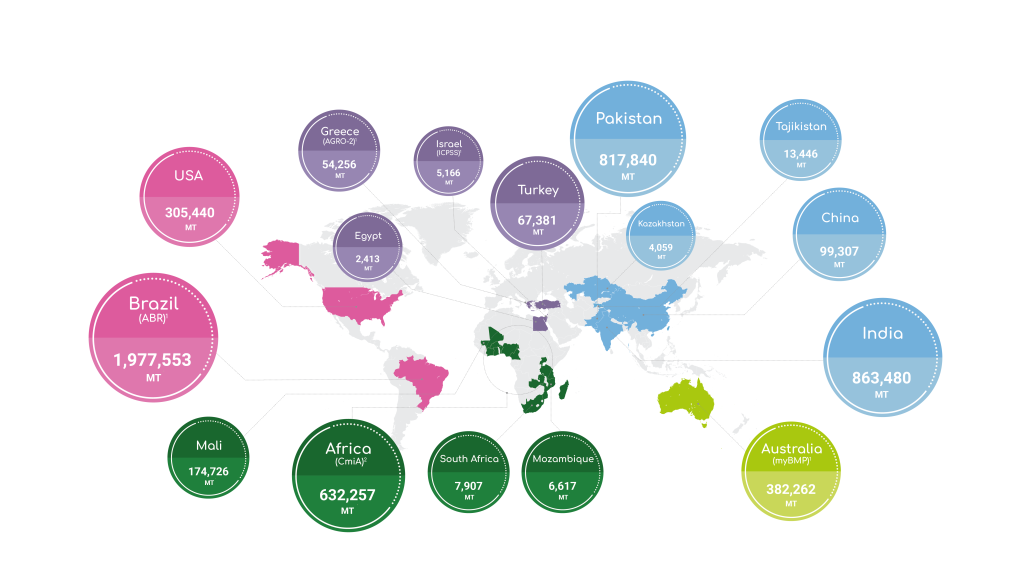

Alongside this data, our Annual Report 2022-23 explores some of our biggest endeavours of the 2022-23 fiscal year. We finalised the Principles and Criteria v3.0, and launched our Impact Targets for our 2030 Strategy. We’ve also been working on a Traceability Solution with new Chain of Custody models, all of which launches in the coming weeks.
We’ve set a strong foundation to focus on deepening our impact across the global cotton sector. We hope you’ll read the report and learn more about the progress we’re excited to see in sustainable cotton production.
2022-23 Annual Report
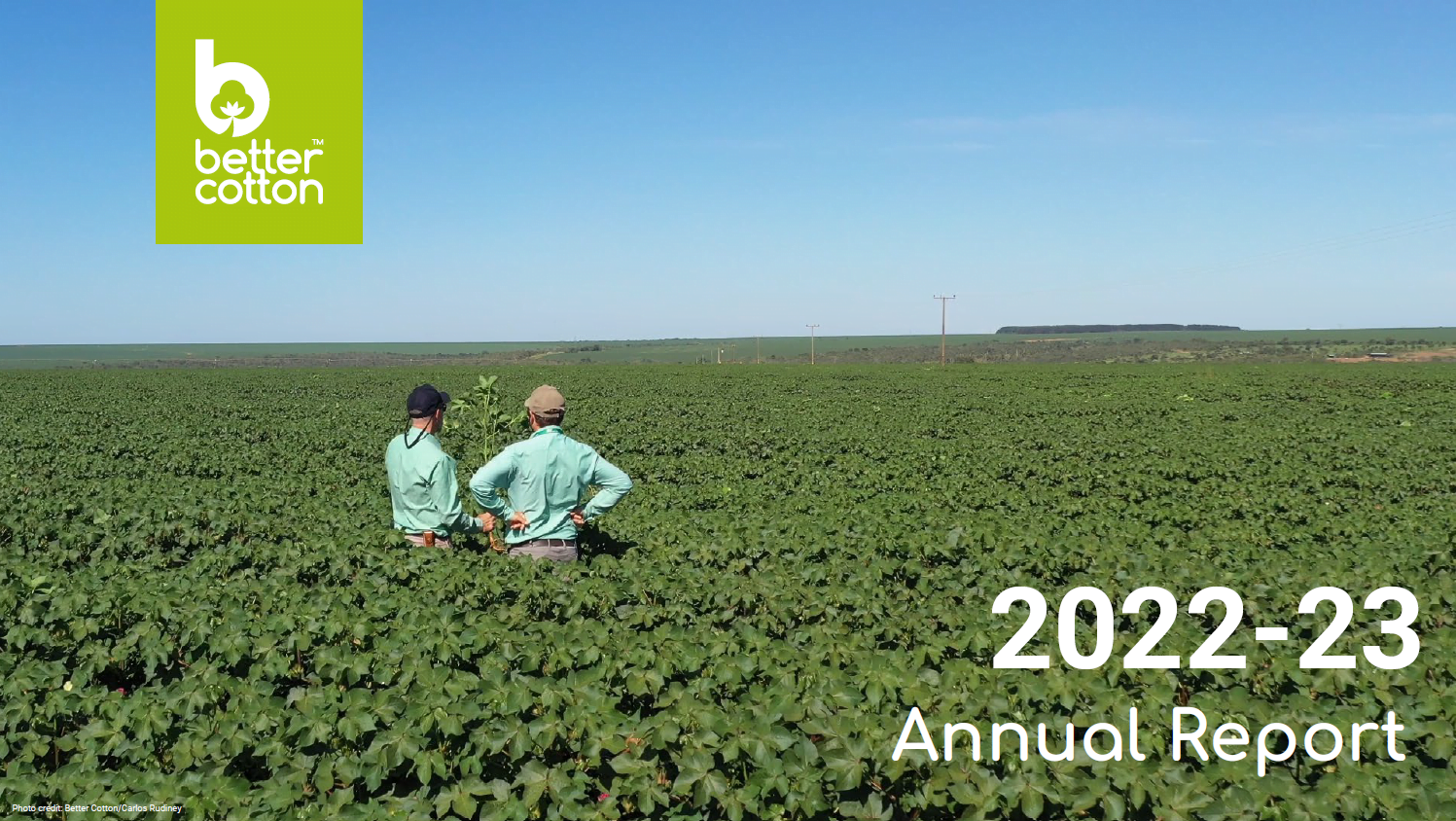

Better Cotton Launches Strategic Partnership in Spain
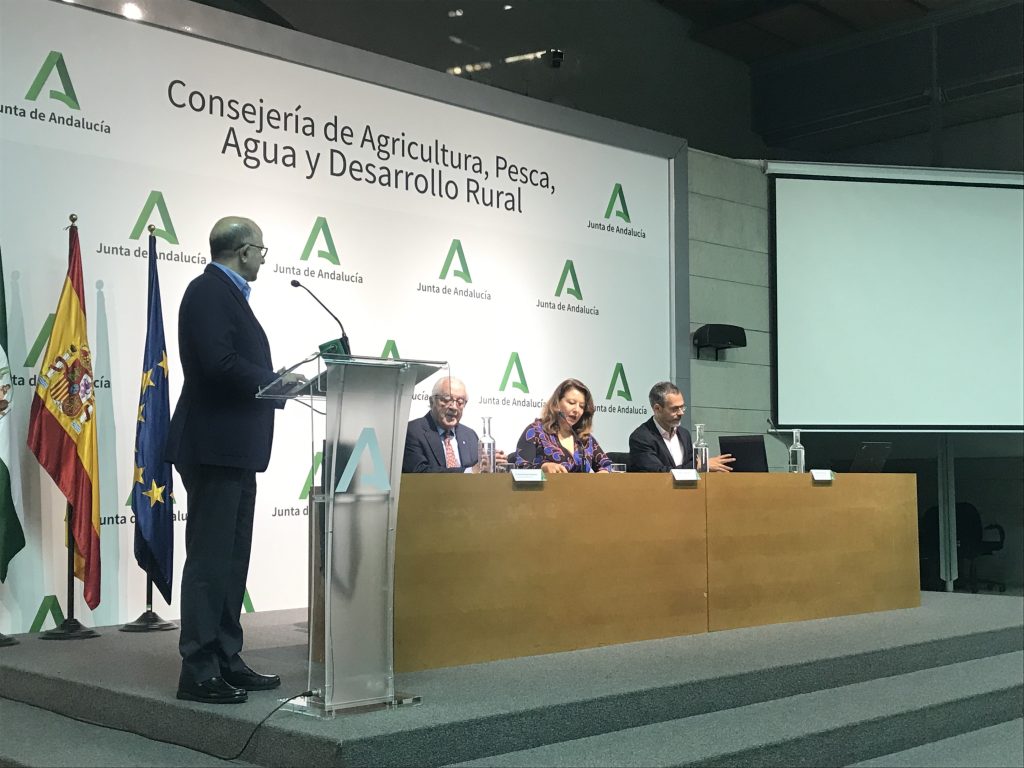

- Better Cotton has forged partnerships with Espalgodon and the Regional Government of Andalucia to kickstart the production of Better Cotton-equivalent cotton in Spain.
- Better Cotton has worked with the Regional Government of Andalucia to align its Integrated Production System (IPS) with the Better Cotton Standard System (BCSS).
- The multistakeholder meeting in Seville will host farmers, ginners and other stakeholders native to Spain.
Better Cotton will today inaugurate the launch of a strategic partnership in Spain by hosting a multistakeholder event in Seville. The meeting will convene the Interprofessional Cotton Association (Espalgodon) and the Regional Government of Andalucia – two stakeholders that have helped ensure alignment between the regional government’s Integrated Production System (IPS) and the Better Cotton Standard System (BCSS) – in addition to participating farmers, ginners and other industry representatives.
Espalgodon – a coalition of three Spanish agricultural organisations – represents all cotton farmers in the country, which are projected to produce around 64,000 tonnes of cotton in the 2023/24 season. The organisation submitted a Declaration of Interest in 2021, outlining domestic appetite to collaborate on the production of more sustainable cotton.
Better Cotton has since worked with the Regional Government of Andalucia – Spain’s major cotton growing region – to recognise its Integrated Production System (IPS) as the country’s equivalent to the Better Cotton Standard System (BCSS). In practice, this will enable cotton produced on IPS licensed farms to be sold as ‘Better Cotton’.
By aligning with organisations active in Spain’s cotton sector, Better Cotton stands to tap into existing networks and local expertise whilst avoiding duplication. In return, native cotton farmers gain assurances that their product complies with the widely recognised Better Cotton Standard System.
In the 2023/24 cotton season, production is projected to decrease by upwards of 48% from the previous season due to crop development issues exacerbated by droughts.
Better Cotton’s New Country Start-Up process included the completion of a benchmarking report by third-party services provider PwC, which outlined the gaps between the two systems and the necessary action required to reach alignment.
Better Cotton, Espalgodon and the regional government will signify the start of the strategic partnership by signing an agreement, before the respective organisations present to attendees at today’s event.
The impacts of climate change on Spain’s cotton crop are plain to see from the country’s projections for the 2023/24 cotton season. Espalgodon and the Regional Government of Andalucia have demonstrated their commitment to improving the sustainability credentials of domestically grown cotton, which can make farmers more resilient in the face of global warming.
Better Cotton Calls for Eradication of Highly Hazardous Pesticides in Agriculture
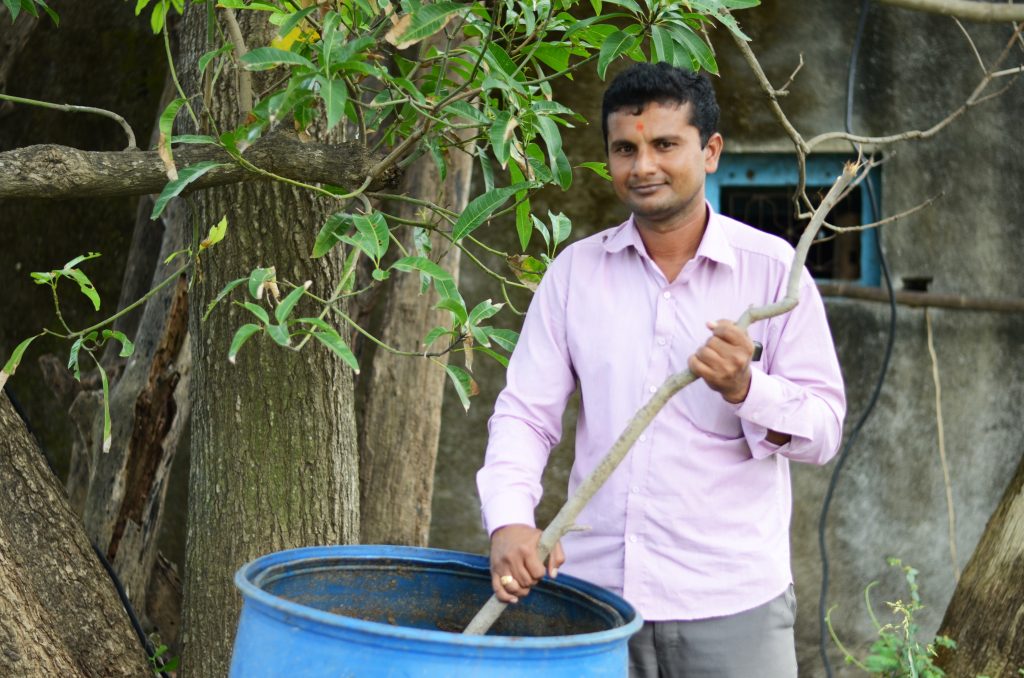

- Better Cotton, Fairtrade, Rainforest Alliance and others urge governments to kickstart global phase-out of highly hazardous pesticides.
- Call made ahead of International Conference on Chemicals Management’s fifth session, set to take place in Bonn, Germany, from 25-29 September.
- Exposure to highly hazardous pesticides (HHPs) linked to severe health conditions.
- Farmers in Better Cotton’s India Programme cut highly hazardous pesticides use from 64% to 10% between 2014/15 and 2021/22 cotton seasons.
Better Cotton and our partners in the Integrated Pest Management (IPM) Coalition have issued a position paper demanding a global phase-out of highly hazardous pesticides (HHPs) across agricultural supply chains.
Ahead of the fifth session of the International Conference on Chemicals Management (ICCM5), set to take place in Bonn, Germany, from 25-29 September, Better Cotton and fellow Coalition founding members have urged authorities to enforce regulatory frameworks that would mandate the elimination of highly hazardous agrochemicals.
The Coalition – which also includes Fairtrade, Rainforest Alliance, the Sustainable Agriculture Network (SAN), and the Forest Stewardship Council (FSC) – has outlined a series of recommendations to catalyse action on HHPs in agriculture. These include:
- Committing to the global phase-out of HHPs through coordinated and time-bound actions.
- Supporting agricultural producers in their efforts to transition to sustainable agriculture practices, such as agroecology and IPM, aimed at minimising or excluding hazardous pesticide use by providing enabling policy frameworks and funding.
- Investing in research and innovation to develop and promote safer alternatives to HHPs, ensuring they are affordable and accessible to farmers worldwide.
- Promoting awareness, education programmes, and trainings to support farmers to adopt IPM practices and make informed pest control choices.
- Collaborating with governments, industry, and civil society to prevent subsidies for HHPs, and strengthen regulatory frameworks and enforcement mechanisms to ensure an effective HHP phase-out.
HHPs have historically been used to combat the threat posed by pests to cotton and other crops. Exposure to such pesticides can, however, jeopardise the health and safety of agricultural workers despite of the availability and utilisation of personal protective equipment (PPE).
Better Cotton has made significant progress in its efforts to eliminate the use of HHPs on cotton farms. In India alone, between the 2014/15 and 21/22 cotton seasons, Better Cotton Farmers cut their use of HHPs from 64% to 10%, whilst those using Monocrotophos – a pesticide classed as highly toxic by the World Health Organization – dropped from 41% to just 2%.
Across Better Cotton’s network and those of its cross-commodity partners within the Coalition – which together produce cotton, cocoa, coffee, palm oil and tea across more than 13 million hectares of land – an IPM approach has helped more than seven million farmers adopt more sustainable solutions.
As defined in Better Cotton’s Principles and Criteria (P&C), an IPM approach to cotton farming entails growing a healthy crop, preventing the build-up of pest populations, preserving and enhancing populations of beneficial organisms, field observation and managing resistance.
Trainings are provided across all countries in which Better Cotton operates to ensure cotton farmers are equipped to adopt an IPM approach and can contribute to the global phase-out of HHPs.
The IPM Coalition commends the United Nations’ Strategic Approach for International Chemicals Management (SAICM) for initiating the fifth session of the International Conference on Chemicals Management (ICCM5) which will provide an opportunity to address chemical management in accordance with the organisation’s Sustainable Development Goals (SDGs).
Only a global response to the use of highly hazardous pesticides in agricultural supply chains will ensure that farmers and their land are protected from the harmful impacts of such formulations. The IPM Coalition exists to bang the drum on this important issue and we hope authorities will join us in driving change.
Sustainable Livelihoods: How Our New Principle Supports Better Cotton’s Mission to Boost Cotton Farmers’ Income and Resilience
Smallholders (SH): Farms with a farm size typically not exceeding 20 hectares of cotton which are not structurally dependent on permanent hired labour.
Medium Farms (MF): Farms with a farm size typically between 20 to 200 hectares of cotton which usually are structurally dependent on permanent hired labour.
Spotlighting How Traceability Can Support Sustainable Cotton at WTO Public Forum


Bottom row: Gregory Sampson, Solutions Architect at the International Trade Centre (ITC) (left); Josh Taylor, Traceability Manager at Better Cotton (centre); Jeremy Thimm, Organic Production Specialist at the Global Organic Textile Standard (GOTS) (right).
Better Cotton will this week participate in a panel discussion at the World Trade Organization’s Public Forum focusing on the topic of traceability within fashion and textile supply chains.
The session, titled: ‘Traceability as the Key Enabler for Improving the Sustainability of Cotton Value Chains’ will take place 15 September at the Centre William Rappard, in Geneva, Switzerland.
Jacky Broomhead, Senior Traceability Manager at Better Cotton, will moderate the discussion and will be joined by a panel including Maria Teresa Pisani, Officer-in-Charge of the United Nation’s Economic Commission for Europe’s (UNECE) Trade Facilitation Section; Gregory Sampson, Solutions Architect at the International Trade Centre (ITC); Jeremy Thimm, Organic Production Specialist at the Global Organic Textile Standard (GOTS); and Josh Taylor, Traceability Manager at Better Cotton.
Traceability will be discussed in the context of how it could benefit fashion and textile supply chains facing tightening due diligence legislation, in addition to investor pressure and changing consumer expectations around sustainability.
After two years of development, Better Cotton will this year launch its own traceability solution, capable of providing supply chain visibility for industry stakeholders. With this, cotton will be fed through new Chain of Custody models that monitor the flow of product throughout the value chain.
By logging transactions between stakeholders, fashion retailers and brands that purchase Better Cotton through its traceability solution will have oversight of their cotton’s country of origin, in addition to the proportion of Better Cotton in their products.
“This week’s Public Forum is a great opportunity to have an open discussion on the benefits and ramifications of supply chain traceability. Progress requiring the adoption of new technologies can run the risk of favouring large and developed organisations. We’re keen to collaborate with our peers to ensure these developments are scalable and inclusive for the benefit of the entire textile industry.”
Traceability will connect farmers to the supply chain and form the foundation for an Impact Marketplace Better Cotton is developing, through which farmers would be rewarded for their transition to more sustainable farming.
The panel discussion will explore the opportunity traceability holds to drive more sustainable cotton supply chains, the importance of alignment when scaling such solutions, and the need for accessible and inclusive approaches.
Read moreIndia Impact Report Indicates Clear Positive Trends – Pesticide and Water Use Down Significantly
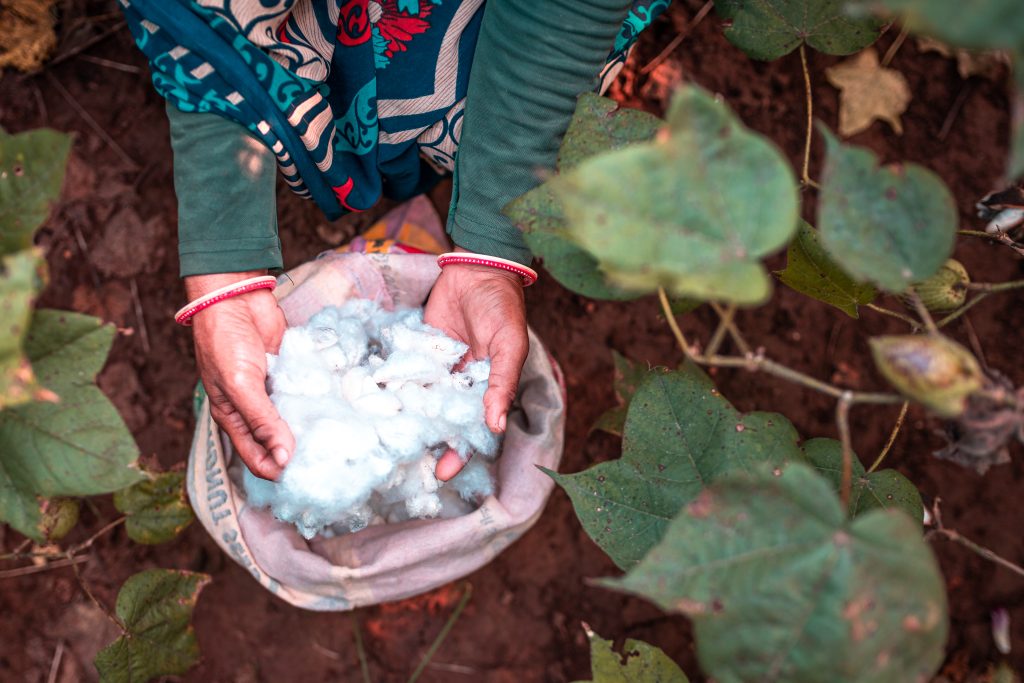

We have today published our 2023 India Impact Report, which highlights significant field-level progress in reducing pesticide and water use, in addition to improvements on farmer livelihoods and equality.
The India Impact Report charts the performance of Indian cotton farmers in the Better Cotton Programme from the 2014/15 season through to the 2021/22 season – exploring the tangible benefits of more sustainable cotton production for both people and the planet.
The report explores a variety of facets of Better Cotton production, from resource utilisation and its impact on farms and the environment, to the makeup of farming communities and their economic outlook.
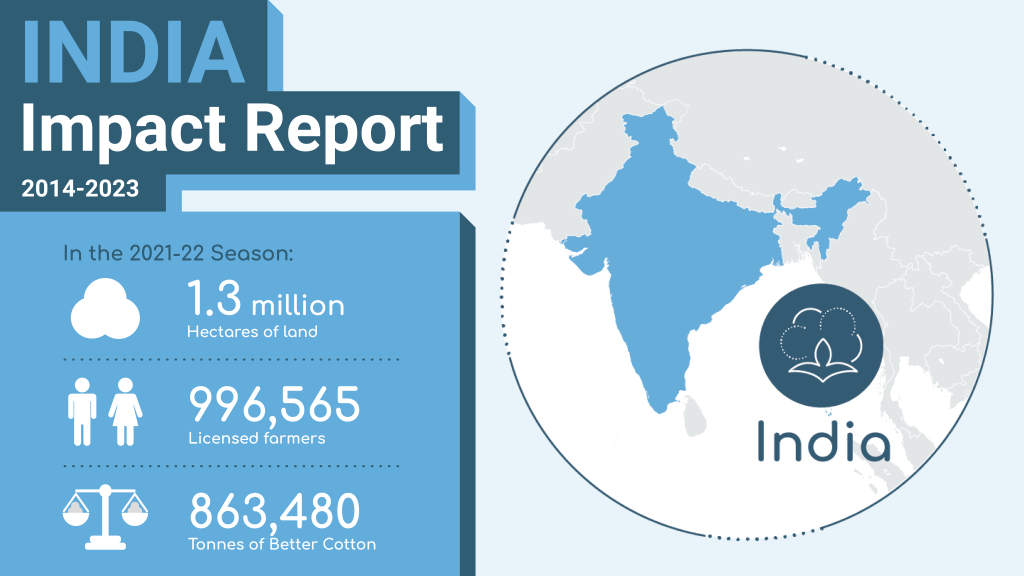

Since the launch of Better Cotton Programme in India in 2011, the organisation’s network of farmers has expanded from tens of thousands to almost one million.
The report shows a dramatic reduction in the use of pesticides and highly hazardous pesticides (HHPs) by Better Cotton Farmers across India. From the 2014-17 seasons – used as a three-season average – to the 2021/22 season, overall pesticide use reduced by 53% as a result of the adoption of capacity strengthening trainings on an Integrated Pest Management (IPM) and the delivery of effective awareness campaigns.
Specifically, the number of farmers using HHPs was cut from 64% to 10%, whilst those using Monocrotophos – a pesticide classed as highly toxic by the World Health Organization – dropped from 41% to just 2%.
Water usage for irrigation was reduced by 29% between the baseline years and the 2021/22 season. Nitrogen application – which drives greenhouse gas emissions in cotton production when used excessively – decreased by 6% per hectare.
On farmer livelihoods, results indicator data between the 2014-15 to 2021-22 cotton seasons has shown that total costs per hectare (excluding land renting) decreased by 15.6% in 2021-22 compared to the three-season average, driven by expense reductions for land preparation and fertiliser expenses. In 2021, Better Cotton Farmers also had an average cotton lint yield per hectare of 650kg — 200kg per hectare more than the national average.
On women in cotton, meanwhile, there has been an overall increase in the number of women Better Cotton Field Staff across India. In the 2019-20 cotton season, around 10% of Field Facilitators were women, rising to over 25% in the 2022-23 cotton season.
As the organisation turns its focus from expansion to deepening impact, the report serves to celebrate progress and identify development gaps. Part of Better Cotton’s role is to highlight needs for improvement and where continued engagement can make a positive difference for the communities growing cotton in India.
It also represents a departure from the organisation’s past results reporting methodology – through which Better Cotton Farmers were compared with non-Better Cotton Farmers – in that the operations of Better Cotton Farmers are monitored over time to assess year-on-year progress.
Since the first Better Cotton harvest in India in 2011, the country has been a pioneering force within the Better Cotton Programme. We’re buoyed by the results in this Impact Report, which demonstrate the environmental, social and economic benefits of Better Cotton production, and remain committed to driving further improvements at the farm-level.
To read the executive summary and the full report, head to the links below.








































